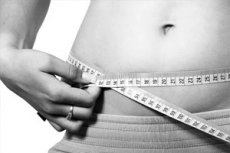New publications
Is it possible to lose weight by sticking to interval fasting?
Last reviewed: 02.07.2025

All iLive content is medically reviewed or fact checked to ensure as much factual accuracy as possible.
We have strict sourcing guidelines and only link to reputable media sites, academic research institutions and, whenever possible, medically peer reviewed studies. Note that the numbers in parentheses ([1], [2], etc.) are clickable links to these studies.
If you feel that any of our content is inaccurate, out-of-date, or otherwise questionable, please select it and press Ctrl + Enter.

Intermittent fasting will give the expected result if the fasting period falls at night.
It has been proven by numerous experiments that a calorie deficit in the body is useful to a certain extent. It optimizes metabolic processes, facilitates cardiac function, stabilizes blood pressure, and increases physical performance. However, there are different types of fasting: the most well-known are prolonged water fasting, dry fasting, and intermittent fasting. The latter option is considered the most gentle and is most easily tolerated by most people.
Research shows that the benefits of intermittent fasting are no less obvious than those of a regular reduction in calorie intake. Representatives of Columbia University have discovered that such a beneficial effect is due to circadian rhythms. Scientists conducted an experiment on insects - Drosophila flies, which are characterized by alternating 20-hour fasting periods with periods of prolonged saturation, lasting 28 hours. Insects that "adhered" to this regime lived 13-18% longer than their relatives who ate without intermittent fasting. In addition to an increase in life expectancy, other positive changes were noted: the flies were more active, they showed a slowdown in signs of aging. Moreover, the most obvious effect was noted in "middle-aged" flies. Older flies, even with intermittent fasting, did not become long-livers, and in some insects the life span was even shortened.
If we consider the daily caloric intake, then during open access to food, the fasting flies ate even more calories than the non-fasting ones.
Scientists analyzed the dependence of these processes on circadian, or daily, rhythms. Such rhythms are regulated by several genes, and when they were turned off, the flies lost the beneficial effects of intermittent fasting. The benefits were also lost when the researchers shifted the feeding schedule by 12 hours. As a result, they concluded that in order to lose weight and improve the body's condition, the fasting period should fall mainly at night.
Circadian rhythms affect many reactions and processes, including autophagy. This is an intracellular cleansing process that renews the cell from the inside. This process occurs mainly at night, during the body's rest. When autophagy was suppressed in flies, the effect of intermittent fasting was reduced to "zero". If this process was activated, on the contrary, Drosophila became long-lived, even without fasting. Experts made another conclusion: autophagy depends on circadian rhythms, determining the effectiveness of fasting.
Like the insects studied, humans sleep mostly at night. Therefore, the information obtained during the experiments can be used in relation to us. For example, intermittent fasting should involve a period of food restriction at night.
The full results of the work can be found on the pages of the journal Nature
